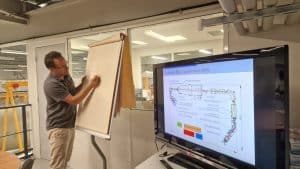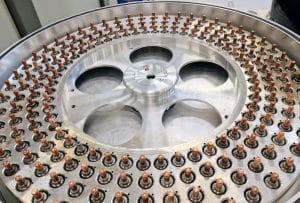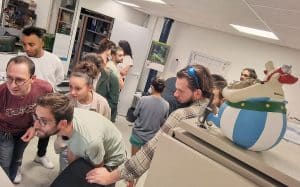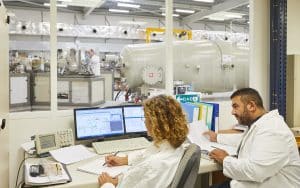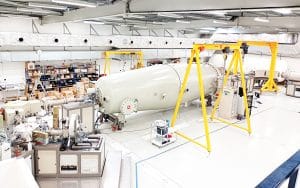National Laboratory of Cosmogenic Nucleides
The National Laboratory for Cosmogenic Nucleides (LN2C) is a structure dedicated to the use of cosmogenic nuclides in Earth Sciences, notably through the preparation of samples and the measurement of cosmogenic isotopes.
Its mission is to provide the French scientific community with efficient access to these methods in the context of research projects in the following areas.
- Natural hazards and risks, associated with earthquakes and landslides
- Past trends in climate, for example with the dating of markers associated with the ice ages
- Landscape dynamics and the determination of current and past erosion rates
- Dating of archaeological sites
- Evolution of Earth magnetic field
The LN2C consists of a set of laboratories for the purification and preparation of various types of samples (rocks, soils, water, etc.) as well as the measurement of different isotope ratios (10Be/9Be, 26Al/27Al, 36Cl/35Cl,...) by the national ASTER instrument (Accelerator Mass Spectrometer). It brings together a group of AMU faculty members, CNRS or IRD researchers, engineers and technicians specialized in these tools.
The LN2C was founded by Didier Bourlès (AMU Professor) and has been hosted by CEREGE on the Technopôle de l'Arbois in Aix-en-Provence since 2006.
The installation of the ASTER instrument was made possible by an initial investment from the Bouches du Rhône General Council, the European Regional Development Fund (ERDF), the CNRS, the IRD and the Provence-Alpes-Côte d'Azur Region.
The LN2C is a Technology Platform of Aix-Marseille University and is part of ReGEF network. It is supported by recurrent funding from CNRS and IRD.
The LN2C has benefited from the Investissements d'Avenir programme via the EQUIPEX ASTER-CEREGE, which has enabled the installation of a new source for the ASTER accelerator.
In 2023, theThe LN2C ASTER team is awarded the Cristal Collectif CNRSfor having led projects whose technical mastery, collective dimension, applications, innovation and influence are particularly remarkable.




